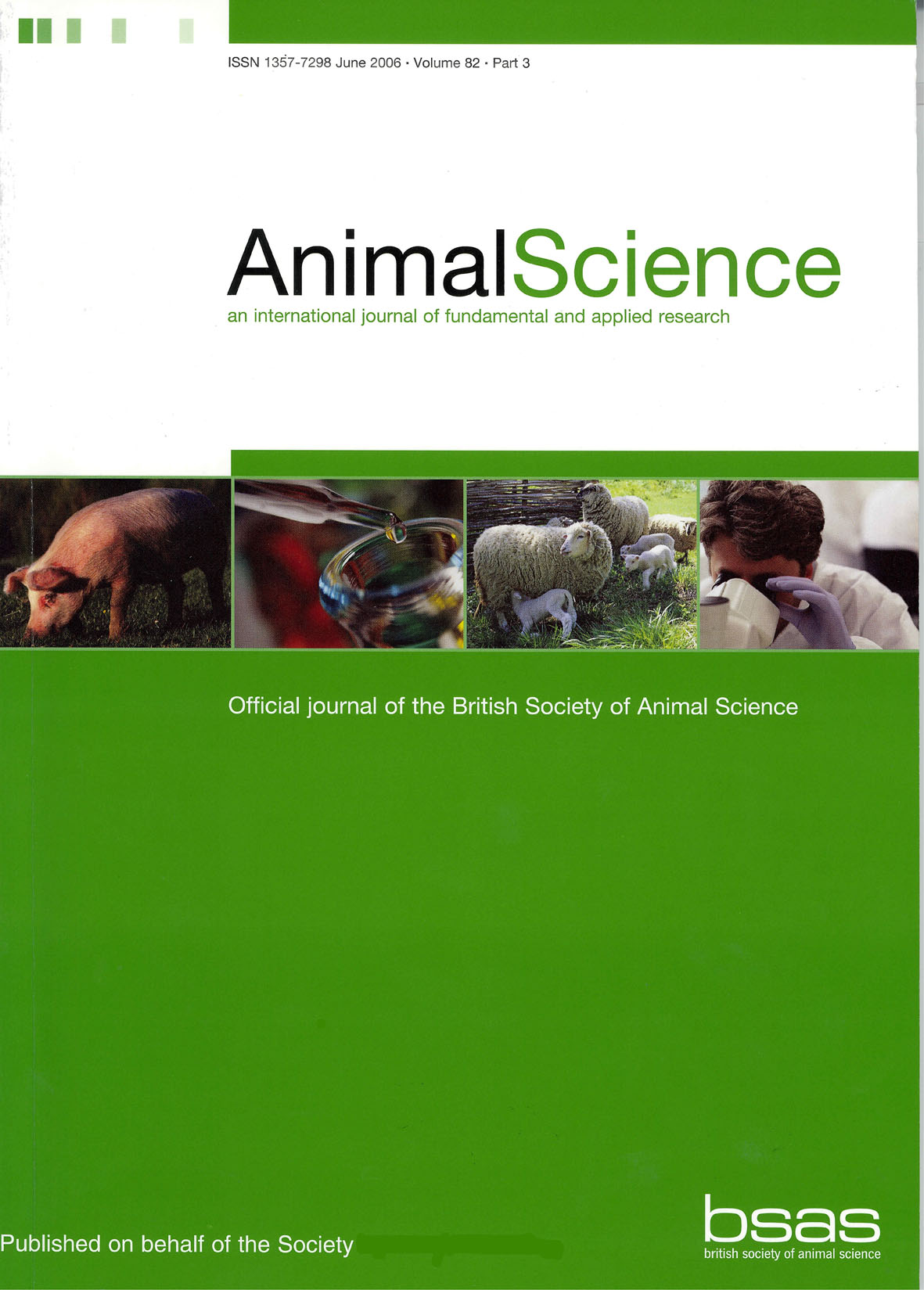Crossref Citations
This article has been cited by the following publications. This list is generated based on data provided by
Crossref.
Tallowin, J. R. B.
Rook, A. J.
and
Rutter, S. M.
2005.
Impact of grazing management on biodiversity of grasslands.
Animal Science,
Vol. 81,
Issue. 2,
p.
193.
Duncan, Alan
2005.
Farm Animals and Biodiversity.
Animal Science,
Vol. 81,
Issue. 2,
p.
187.
Buckingham, D. L.
and
Peach, W. J.
2005.
The influence of livestock management on habitat quality for farmland birds.
Animal Science,
Vol. 81,
Issue. 2,
p.
199.
Riedel, J.L.
Casasús, I.
and
Bernués, A.
2007.
Sheep farming intensification and utilization of natural resources in a Mediterranean pastoral agro-ecosystem.
Livestock Science,
Vol. 111,
Issue. 1-2,
p.
153.
Evans, Karl L.
Wilson, Jeremy D.
and
Bradbury, Richard B.
2007.
Effects of crop type and aerial invertebrate abundance on foraging barn swallows Hirundo rustica.
Agriculture, Ecosystems & Environment,
Vol. 122,
Issue. 2,
p.
267.
BARBUDO, A. VARO
GUNN, G. J.
and
STOTT, A. W.
2008.
Combining models to examine the financial impact of infertility caused by bovine viral diarrhoea in Scottish beef suckler herds.
The Journal of Agricultural Science,
Vol. 146,
Issue. 6,
p.
621.
Hanley, Nick
Davies, Althea
Angelopoulos, Konstantinos
Hamilton, Alistair
Ross, Alasdair
Tinch, Dugald
and
Watson, Fiona
2008.
Economic determinants of biodiversity change over a 400‐year period in the Scottish uplands.
Journal of Applied Ecology,
Vol. 45,
Issue. 6,
p.
1557.
Lawrence, A.B.
and
Conington, J.
2008.
The Welfare of Sheep.
Vol. 6,
Issue. ,
p.
343.
Acs, Szvetlana
Hanley, Nick
Dallimer, Martin
Gaston, Kevin J.
Robertson, Philip
Wilson, Paul
and
Armsworth, Paul R.
2010.
The effect of decoupling on marginal agricultural systems: Implications for farm incomes, land use and upland ecology.
Land Use Policy,
Vol. 27,
Issue. 2,
p.
550.
Elofsson, Katarina
2010.
The Costs of Meeting the Environmental Objectives for the Baltic Sea: A Review of the Literature.
AMBIO,
Vol. 39,
Issue. 1,
p.
49.
Stott, A.W.
Humphry, R.W.
and
Gunn, G.J.
2010.
Modelling the effects of previous infection and re-infection on the costs of bovine viral diarrhoea outbreaks in beef herds.
The Veterinary Journal,
Vol. 185,
Issue. 2,
p.
138.
Bonfiglio, Andrea
2011.
A neural network for evaluating environmental impact of decoupling in rural systems.
Computers, Environment and Urban Systems,
Vol. 35,
Issue. 1,
p.
65.
Arens, Ludwig
Thulke, Hans-Hermann
Eisinger, Dirk
and
Theuvsen, Ludwig
2012.
Administrative cooperation and disease control in cross-border pork production.
Food Policy,
Vol. 37,
Issue. 4,
p.
473.
Tzanopoulos, Joseph
Jones, Philip J.
and
Mortimer, Simon R.
2012.
The implications of the 2003 Common Agricultural Policy reforms for land-use and landscape quality in England.
Landscape and Urban Planning,
Vol. 108,
Issue. 1,
p.
39.
Morgan-Davies, Claire
Waterhouse, Tony
and
Wilson, Ron
2012.
Characterisation of farmers’ responses to policy reforms in Scottish hill farming areas.
Small Ruminant Research,
Vol. 102,
Issue. 2-3,
p.
96.
Adam, Katherine
Henry, Colette
Baillie, Sarah
and
Rushton, Jonathan
2014.
Exploring Rural Enterprise: New Perspectives on Research, Policy & Practice.
Vol. 4,
Issue. ,
p.
133.
Wilson, P.
Glithero, N.J.
and
Ramsden, S.J.
2014.
Prospects for dedicated energy crop production and attitudes towards agricultural straw use: The case of livestock farmers.
Energy Policy,
Vol. 74,
Issue. ,
p.
101.
Adam, Katherine
Henry, Colette
Baillie, Sarah
and
Rushton, Jonathan
2014.
Exploring Rural Enterprise: New Perspectives on Research, Policy & Practice.
Vol. 4,
Issue. ,
p.
133.
Termansen, Mette
Chapman, Daniel S.
Quinn, Claire H.
Fraser, Evan D.G.
Jin, Nanlin
Beharry-Borg, Nesha
and
Hubacek, Klaus
2019.
Resilience in Complex Socio-ecological Systems.
Vol. 60,
Issue. ,
p.
125.


